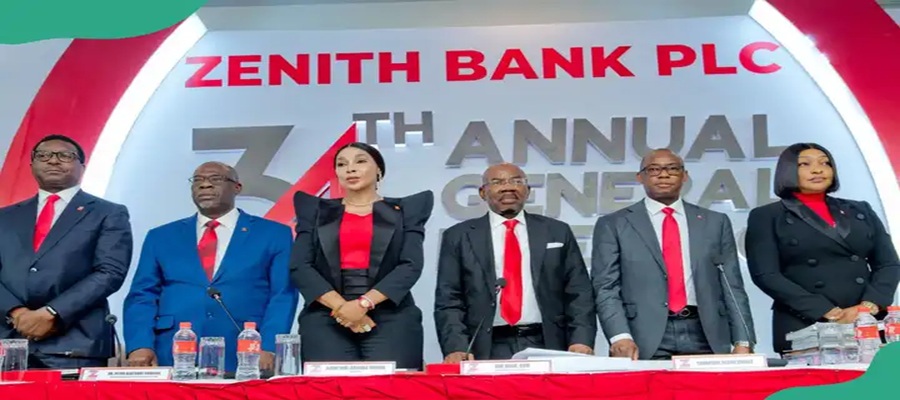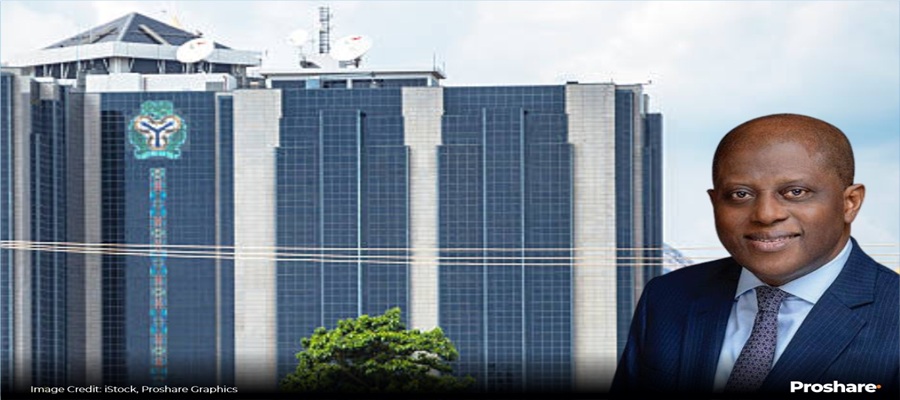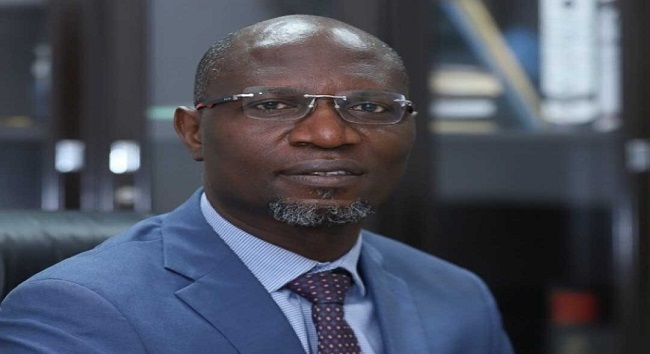E-Financial
Banks Spend N34.2Bn on IT, e-Business Infrastructure

Given the drive to support the Central Bank of Nigeria (CBN) policy on cashless society and leverage on Information Technology, a total of eight deposit money banks have spent N34.2 billion on IT and electronic business infrastructure in nine months ended September 30, 2017, according to Leadership.
Prior nine months, the same banks spent N25 billion on Information Technology-related infrastructure, software, computers and introduction of mobile apps.
Commercial banks operating in Nigeria have increasingly depended on the deployment of IT infrastructure to drive their processes, grow their business operations in order to deliver superior financial performance to meet and surpass customer expectations.
The banks surveyed are Zenith Bank Plc, Access Bank Plc, United Bank for Africa Plc (UBA), Stanbic IBTC, Fidelity Bank Plc, Union Bank of Nigeria Plc and Sterling bank Plc.
Access Bank top Tier-1 deposit money banks when it comes to IT and electronic business expenses, spending N13.3 billion in nine months ended September 30, 2017, an increase of about 50.4 per cent from N8.87 billion reported in nine months ended September 30, 2016.
Following Access Bank is Zenith Bank with N8.6 billion on IT expenses from N4.6 billion in prior nine months, while UBA’s IT support and related expenses dropped by 48 per cent to N1.06 billion as against N2.02 billion reported in nine months ended September 30, 2016.
Zenith Bank, over the years, became synonymous with the use of IT in banking and general innovation in the Nigerian banking industry.
The bank in a statement said, “We have renewed our commitment in ensuring that all our activities are anchored on the e-platform and providing service delivery through the electronic media to all customers irrespective of place, time and distance.
“Zenith group only recently scored another first, becoming the first Nigerian institution to be awarded a triple ISO certification by the British Standards International (BSI): the ISO22301, 27001 and 20000 standards”.
In reducing its branches network, Union Bank of Nigeria’s expenses on IT related gained 33 per cent to N2.97 billion from N2.23 billion, while Stanbic IBTC expenses on IT dropped by 3.7 per cent from N3.7 billion to N3.59 billion in nine months ended September 30, 2017.
Most Tier-2 deposit money banks were spending less on IT, Electronic Business Infrastructures, attributable to smaller networks.
Specifically, Fidelity Bank’s IT expenses dropped by 12 per cent to N2.1 billion from N2.42 billion reported in nine months ended September 30, 2016.
The MD/CEO of Fidelity Bank Plc, Mr. Nnamdi Okonkwo, in a statement said, the bank is committed to driving its digital banking aspirations in line with the management medium term strategy.
“We have been able to sustain our performance trend this year through the following: disciplined balance sheet management, strategic cost reduction and driving our digital banking aspirations which are all in line with the execution of our medium term strategy”, he said.
Others are Diamond Bank and Sterling Bank that spent N1.12 billion and N1.33 billion on IT and Electronic Business Infrastructures in nine months ended September 30, 2017.
E-Financial
Zenith Bank Top Nigerian Bank Pick Ahead of GTCO, AccessCorp

Renaissance Capital Africa (Rencap) has named Zenith Bank Plc its top conviction pick among Nigerian banks, ahead of GTCO and AccessCorp, in a fresh research report highlighting the lender’s robust balance sheet and dividend potential despite sector headwinds.

Zenith Bank
The comprehensive review of the Nigerian banking industry notes that Zenith’s current market valuation lags its improving fundamentals, even as the NGX Banking Index posts strong gains recently.
Rencap upgraded Zenith from HOLD to BUY, lifting its target price by 96 per cent based on a lower risk-free rate from falling government bond yields, refined beta estimates, and expectations of cleaner assets post-forybearance resolutions.
Balance Sheet Strength Drives Outlook
Analysts project challenges to earnings growth from anticipated Central Bank of Nigeria (CBN) rate cuts but foresee higher dividend payouts from resolved forbearance and single obligor loan (SOL) exposures alongside rising cash profits.
“Although we expect banks to face challenges in growing earnings… the balance sheet clean-up… will support higher dividend payouts relative to prior years,” the report states, ranking Zenith first, followed by GTCO and AccessCorp.
Key positives include loan write-offs that bolstered asset quality, enabling sustainable growth amid financial system reforms.
Dividend Recovery in Focus
Sector profitability from 2023-2024 was inflated by unrealised foreign exchange gains, which regulations barred from cash dividends, capping payouts despite headline profits.
Zenith historically led payout ratios in 2021-2022 via strong cash generation and capital discipline; Rencap expects a rebound as pressures ease, attracting income-focused investors.
Tier-1 Leadership Reinforced
Zenith Bank recently topped Nigeria’s tier-1 capital rankings for the 16th straight year, per The Banker magazine (Financial Times), affirming its resilience and positioning for long-term value creation.
E-Financial
Here Are Nigerian Banks That Have Secured Their Licences


CBN
- Access Bank Plc
- Fidelity Bank Plc
- First Bank of Nigeria Ltd
- Guaranty Trust Bank (GTBank)
- United Bank for Africa (UBA)
- Zenith Bank Plc
- FCMB (First City Monument Bank) – currently pushing to raise additional capital to secure its international licence.
- Wema Bank
- Standard Chartered Bank (Nigeria)
- Citibank Nigeria
- Stanbic IBTC Bank
- Sterling Bank
- Globus Bank
- Premium Trust Bank
E-Financial
SEC Hikes Minimum Capital Requirements for Market Operators After a Decade

The Securities and Exchange Commission (SEC) has revised the minimum capital applicable to all categories of regulated capital market entities after 10 years.

The minimum capital review, according to the SEC, is informed by the need to strengthen market resilience, enhance investor protection, align capital adequacy with the evolving risk profile of market activities, and ensure that regulated entities possess sufficient financial capacity to discharge their obligations in a sustainable manner.
“The revised Minimum Capital framework seeks to: enhance the financial soundness and operational resilience of market operators; align capital requirements with the scope, complexity, and risk exposure of regulated activities; promote market stability and systemic risk mitigation; and support innovation and orderly development of new market segments, including digital assets and commodities markets,” SEC said in a January 16 circular to market operators.
The SEC circular was sent to all entities regulated by the Commission, including but not limited to core and non-core capital market operators; market infrastructure institutions; capital market consultants; financial technology (FinTech) operators; Virtual Asset Service Providers (VASPs); and Commodity market intermediaries.
All affected entities are required to comply with the revised Minimum Capital Requirements on or before June 30, 2027, the circular said.
“Entities that fail to meet the prescribed requirements within the stipulated timeline shall be subject to appropriate regulatory sanctions, including suspension or withdrawal of registration, as may be determined by the Commission,” SEC said.
Tier-1 Portfolio Managers (Full Scope) involved in the management of Collective Investment Schemes (CIS) and Alternative Investment Funds (Private Equity, Venture Capital, Infrastructure Funds etc) above N20 billion Net Asset Value (NAV), or discretionary and Non-Discretionary Private Portfolio Management Services above N20 billion Assets under Management (AuM), or exposure to foreign instruments up to 40 percent of the NAV are now required to have a minimum capital of N5 billion as against N150 million.
“Any Fund and Portfolio Manager with NAV/AuM of more than N100billion should have a minimum of 10 percent of the NAV/AuM as capital,” SEC added.
For the Tier-2 fund/portfolio managers (Limited Scope) who are in the business of management of Collective Investment Schemes with limited pooled fund creation of not more than 10 times the required capital (N20 billion) on Net Asset Value (NAV), or discretionary and non-discretionary private portfolio management services of not more than N20 billion, or those exposure to foreign instruments of not more than 20 percent of the NAV, now require N2 billion as minimum capital as against low of N150 million.
Likewise, broker-dealers whose services include: client execution, proprietary trading, margin/securities lending and advisory services no longer require N300 million minimum capital to operate but N2 billion.
The SEC said the minimum capital review from 2015 low is in line with its mandate under the Investments and Securities Act 2025 to regulate and develop the Nigerian capital market.
Also, Tier 1 issuing houses who do non-interest finance services, advisory & arrangement services but no underwriting now require N2 billion as against N200 million; while Tier 2 –issuing houses with underwriting and offers a ‘one-stop-shop’ for issuers, provides underwriting services, and renders advisory and product development services require N7 billion minimum capital for this business as against N200 million.
Also, the minimum capital requirement for brokers (client execution only) has been jacked up from N200 million to N600 million, while that of dealers (proprietary trading only) has been moved from N100 million to N1 billion.
Broker-Dealers’ (client execution, proprietary trading, margin/securities lending and advisory services) has been raised from N300 million to N2 billion, while Sub-Brokers’ (Digital) from N10million to N100million; Sub-Broker (Corporate) has been increased from N10million to N50 million. Also, sub-brokers’ (Individual) now need N10 million minimum capital for the business as against N2 million while inter-dealer brokers require N2 billion as against N50 million.

 E-Financial2 days ago
E-Financial2 days agoSEC Hikes Minimum Capital Requirements for Market Operators After a Decade

 Telecom2 days ago
Telecom2 days agoVodacom Crowned Africa’s Top Employer 3rd Year Running on Innovation, Ethical AI

 Telecom2 days ago
Telecom2 days agoStudy Shows Blocks in Telegram are Pushing the Underground Out

 News2 days ago
News2 days agoNigeria Off EU High-Risk Money Laundering List in Major Financial Win

 News2 days ago
News2 days agoNGX Unveils Net-Zero Plan for Greener Capital Market

 Telecom2 days ago
Telecom2 days agoGalaxy Backbone Marks Two Decades of Powering Nigeria’s Digital Evolution

 Telecom2 days ago
Telecom2 days agoGalaxy Backbone Marks 20 Years, Tops FG Website Scorecard

 E-Financial3 hours ago
E-Financial3 hours agoZenith Bank Top Nigerian Bank Pick Ahead of GTCO, AccessCorp













